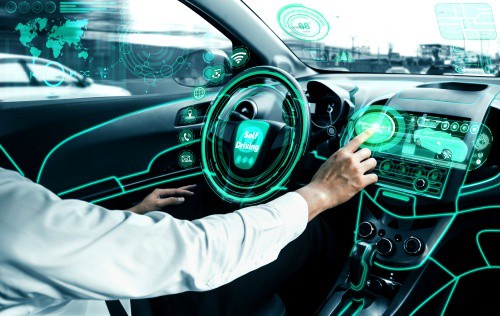Consumers in Asia Pacific show greater preference for electric vehicles (60%) in their next car purchase compared with counterparts from the rest of the world (53%), according to the recently released Automotive Ecosystem Vision Study.
In the study that spanned multiple generations, eight-in-10 respondents say sustainability and eco-friendliness are key priorities in their vehicle purchase and lease decisions. Eighty-seven percent (87%) of Millennials prioritise sustainability in their vehicles followed closely by 78% of Gen Xers and 76% of Baby Boomers. Within APAC, 85% of consumers were aligned with these key priorities, consisting of 92% of millennials, 83% of Gen Xers and 72% of Baby Boomers prioritise sustainability the highest.
Consumers are also driving the growing emphasis on personalisation – the ability to customise a vehicle to their liking. Nearly four-in-five consumers say personalisation options factor into their decision to purchase a vehicle, and eight-in-10 fleet managers share these same requirements for sustainability and personalization. APAC consumers resonate with this most strongly when compared with their global counterparts, with 86% prioritising personalization options in their purchasing decisions, and 92% of fleet managers sharing the same requirements.

“Electric vehicles are gaining popularity in APAC and across the globe, with consumers displaying greater preference towards a greener automotive future,” said Tan Aik Jin, vertical solutions marketing lead APAC, Zebra Technologies.
The Automotive Ecosystem Vision study polled more than 1,300 respondents, including automotive industry decision-makers – such as OEMs and suppliers – fleet managers and consumers. The survey was conducted from August to September 2022 with 350 respondents coming from across Greater China, Japan, India and South Korea.
Commissioned by Zebra Technologies, the study aimed to gauge industry views, priorities and expectations the industry faces and the challenges and opportunities resulting from rapid digital transformation. All data was collected and tabulated by third-party research firm Azure Knowledge Corporation.
Challenges for automotive makers
Consumer preference for green vehicle options are pushing car makers to fast track technology innovation. Despite a fluctuating economy, they are ready to invest in technology innovation as seven-in-10 (74% globally, 69% in APAC) expect to increase their tech spend and six-in-10 (67% globally, 63% APAC) plan to increase their manufacturing infrastructure spend in 2023.
Among the key findings in the Asia Pacific are:
- 19% of automotive industry decision-makers foresee an increased focus on internal combustion engine (ICE) vehicle production over the next five years.
- 39% of these decision-makers are also building capacity for next-generation options, such as electric vehicles.

However, navigating this increasing demand for EVs comes with challenges with 68% of global automotive industry decision-makers (60% in APAC) saying they are under high pressure to produce next generation (i.e., electric) vehicles, while 75% of them (71% in APAC) are under high pressure to deliver products that are more eco-friendly, sustainable, and safer for the environment.
While nearly 80% of automotive industry decision-makers globally (77% in APAC) recognise consumers expect more sustainable and personalised vehicle options today, around seven-in-10 concede it’s difficult to keep up with increasing customisation demands. As a result, three in four automotive manufacturers globally say a top priority is to build strategic partnerships with tech companies for their next generation of production. This number is lower across APAC, at 72% and 64% respectively.
“Automotive decision-makers must take the necessary steps to meet the increasing customer expectations by actively investing more in safe technologies and robust infrastructure.”
Tain Aik Jin, Zebra Technologies
“Meeting regulations and sustainability expectations will be a priority moving forward, as the automotive sector strives to provide real-time visibility throughout the supply chain, which can be achieved by digitalising operations via RFID and rugged mobile computers,” said Tan.
He pointed out that car makers must plan for a smooth transition to EVs, which have very different requirements, from raw materials to final assembly. Technology-led priorities will therefore be focused on increasing automation, building in-house technologies, and expanding visibility across their respective production and supply chains.
Consumers demand data transparency
The study further show both consumers and fleet managers want more visibility in into the automotive ecosystem and this is factored into their purchase and lease decision.
About 81% of consumers globally (85% in APAC) and 86% of fleet managers (92% in APAC) indicate they want to understand the origin of materials and parts on their vehicle. Millennials lead the way in demanding more transparency in automotive manufacturing, as more than eight-in-10 (both globally and in APAC) say it is important to have access to manufacturer information along with knowing if source materials and parts are sustainable and understanding how the vehicle is manufactured from end-to-end.
Moreover, once they have their vehicles, 88% of consumers (82% in APAC) and 86% of fleet managers (88% in APAC) want to understand how the data from their vehicles will be used by the automotive ecosystem.
After a vehicle purchase, 83% of consumers and 84% of fleet managers expect ownership and control of the data their vehicle generates. This sentiment is similarly shared within APAC, by 86% of consumers and 88% of fleet managers.
Automotive supply chain visibility
A majority of consumers (79% globally, 83% in APAC) and fleet managers (81% globally, 84% in APAC) want end-to-end visibility during the manufacturing process. However, only around three-in-10 automotive industry decision-makers say they will prioritise connecting real-time data systems (30% in APAC) to enable a holistic view of operations and increase visibility across production and throughout the supply chain over the next five years (32% in APAC).

Slightly more than one-third of original equipment manufacturers (OEMs) globally and in APAC said autonomous mobile robots (AMRs), RFID, rugged handheld mobile computers and scanners as well as industrial machine vision will improve supply chain management. Similarly for suppliers, one-third of those surveyed cite mobile barcode label/thermal printers, wearable computers and location technology as the technologies to do so.
“Automotive manufacturers today have many hurdles to cross,” said Christanto Suryadarma, Southeast Asia (SEA) sales vice president, Zebra Technologies Asia Pacific. “It is not just about deploying technology but deploying the right technology at the right time. We aim to deliver the right tools and technologies necessary in accelerating human-to-machine capabilities, achieving true enterprise asset intelligence in automotive manufacturing.”
Overall, around seven-in-10 automotive industry decision-makers (76% globally, 67% in APAC) agree digital transformation is a strategic priority for their organisation. In the next five years, they anticipate expanding their use of technology, with 47% (both globally and in APAC) focused on additive manufacturing/3D printing and 45% globally (46% in APAC) on supply chain planning solutions.




